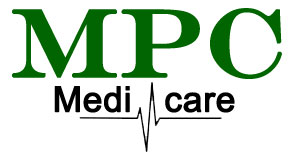
Prescription Drug Plans
Medicare Drug Plans
How to get drug coverage
Medicare offers prescription drug coverage to everyone with Medicare. If you decide not to join a Medicare Prescription Drug Plan when you’re first eligible, and you don’t have other creditable prescription drug coverage, or you don’t get Extra Help, you’ll likely pay a late enrollment penalty.
To get Medicare drug coverage, you must join a plan run by an insurance company or other private company approved by Medicare. Each plan can vary in cost and drugs covered.
2 ways to get drug coverage
Medicare Prescription Drug Plan (Part D). These plans (sometimes called “PDPs”) add drug coverage to Original Medicare, some Medicare Cost Plans, some Medicare Private Fee-for-Service (PFFS) Plans, and Medicare Medical Savings Account (MSA) Plans.
Medicare Advantage Plan (Part C) (like an HMO or PPO) or other Medicare health plan that offers Medicare prescription drug coverage. You get all of your Medicare Part A (Hospital Insurance) and Medicare Part B (Medical Insurance) coverage, and prescription drug coverage (Part D), through these plans. Medicare Advantage Plans with prescription drug coverage are sometimes called “MA-PDs.” You must have Part A and Part B to join a Medicare Advantage Plan.
How to join a drug plan
Once you choose a Medicare drug plan, here’s how you may be able to join:
Call MPC at 610-421-1350 We will provide a complete evaluation of your drug plan needs.
When you join a Medicare drug plan, you’ll give your Medicare number and the date your Part A and/or Part B coverage started. This information is on your Medicare card.
Joining a Medicare drug plan may affect your Medicare Advantage Plan
If your Medicare Advantage Plan (Part C) includes prescription drug coverage and you join a Medicare Prescription Drug Plan (Part D), you’ll be disenrolled from your Medicare Advantage Plan and returned to Original Medicare.
When you decide how to get your Medicare coverage, you might choose a Medicare Advantage Plan (Part C) and/or Medicare prescription drug coverage (Part D).
When can I join a Medicare drug plan?
There are specific times when you can sign up for these plans, or make changes to coverage you already have. You don’t need to sign up for Medicare each year. However, each year you’ll have a chance to review your coverage and change plans.
When you first get Medicare (Initial Enrollment Periods for Part C & Part D)
I’m newly eligible for Medicare because I turned 65.
I’m newly eligible for Medicare because I’m disabled (under 65).
I’m already eligible for Medicare because of a disability, and I turned 65.
I don’t have Medicare Part A coverage, and I enrolled in Medicare Part B during the Part B General Enrollment Period (January 1–March 31).
I have Medicare Part A coverage, and I enrolled in Medicare Part B during the Part B General Enrollment Period (January 1–March 31).
During certain times each year (yearly enrollment periods for Part C & Part D)
Each year, you have a chance to make changes to your Medicare Advantage or Medicare prescription drug coverage for the following year. There are 2 separate enrollment periods each year.
Open Enrollment Period for Medicare Advantage and Medicare prescription drug coverage.
Medicare Advantage Disenrollment Period.
Special circumstances (Special Enrollment Periods)
You can make changes to your Medicare Advantage and Medicare prescription drug coverage when certain events happen in your life, like if you move or you lose other insurance coverage. These chances to make changes are called Special Enrollment Periods (SEPs). Rules about when you can make changes and the type of changes you can make are different for each SEP.
You change where you live
I moved to a new address that isn’t in my plan’s service area.
I moved to a new address that’s still in my plan’s service area, but I have new plan options in my new location.
I moved back to the U.S. after living outside the country.
I just moved into, currently live in, or just moved out of an institution (like a skilled nursing facility or long-term care hospital).
I’m released from jail.
You lose your current coverage
I’m no longer eligible for Medicaid.
I left coverage from my employer or union (including COBRA coverage).
I involuntarily lose other drug coverage that’s as good as Medicare drug coverage (creditable coverage), or my other coverage changes and is no longer creditable.
I had drug coverage through a Medicare Cost Plan and I left the plan.
I dropped my coverage in a Program of All-inclusive Care for the Elderly (PACE) plan.
You have a chance to get other coverage
I have a chance to enroll in other coverage offered by my employer or union.
I have or am enrolling in other drug coverage as good as Medicare prescription drug coverage (like TRICARE or VA coverage).
I enrolled in a Program of All-inclusive Care for the Elderly (PACE) plan.
Your plan changes its contract with Medicare
Medicare takes an official action (called a “sanction”) because of a problem with the plan that affects me.
Medicare ends (terminates) my plan’s contract.
My Medicare Advantage Plan, Medicare Prescription Drug Plan, or Medicare Cost Plan’s contract with Medicare isn’t renewed.
Other special situations
I’m eligible for both Medicare and Medicaid.
I qualify for Extra Help paying for Medicare prescription drug coverage.
I’m enrolled in a State Pharmaceutical Assistance Program (SPAP) or lose SPAP eligibility.
I dropped a Medigap policy the first time I joined a Medicare Advantage Plan.
I have a severe or disabling condition, and there’s a Medicare Chronic Care Special Needs Plan (SNP) available that serves people with my condition.
I’m enrolled in a Special Needs Plan (SNP) and no longer have a condition that qualifies as a special need that the plan serves.
I joined a plan, or chose not to join a plan, due to an error by a federal employee.
I wasn’t properly told that my other private drug coverage wasn’t as good as Medicare drug coverage (creditable coverage).
I wasn’t properly told that I was losing private drug coverage that was as good as Medicare drug coverage (creditable coverage).
